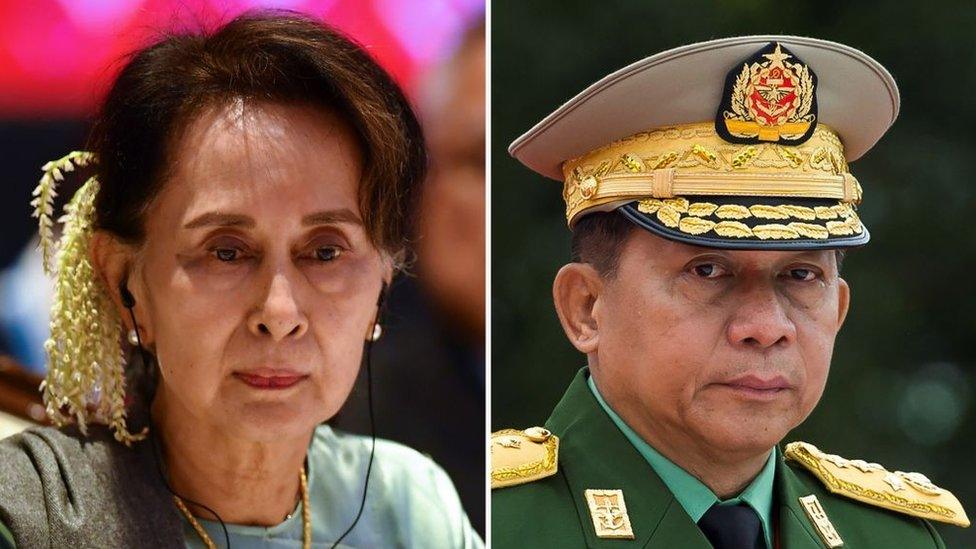Myanmar protests: Ousted speaker in hiding vows to continue 'revolution'
- Published
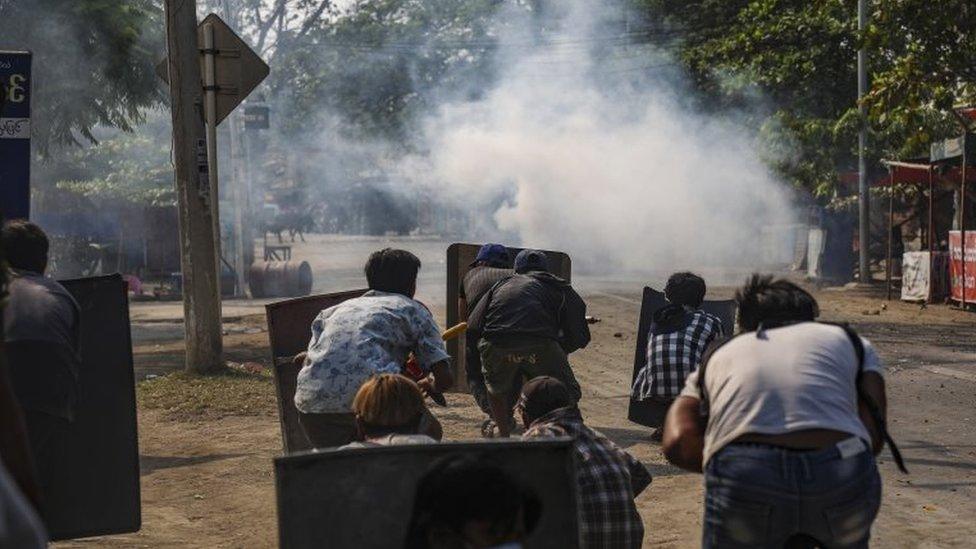
Myanmar has seen daily protests - like this one on 13 March in Mandalay - since the military staged a coup last month
The leader of a group of Myanmar politicians ousted by a military coup has vowed to press on with a "revolution" against the authorities.
In his first public address, Mahn Win Khaing Than said "this is the darkest moment of the nation and the moment that the dawn is close".
From hiding, he leads a group of legislators who have refused to accept last month's coup.
Protests continued on Sunday with at least five people killed.
Local media and a doctor quoted by AFP news agency reported a young man shot dead by security forces in the northern jade-producing city of Hpakant.
Another young man was killed in Bago, near the main city of Yangon, according to local reporters and witnesses.
Local media also reported three protesters killed in clashes in Yangon itself.
The latest casualties follow the deaths of 12 protesters on Saturday, according to BBC Burmese and eyewitnesses.
Myanmar (also known as Burma) has been gripped by street protests since the military seized control on 1 February and detained Aung San Suu Kyi, the leader of the National League for Democracy (NLD) party.
The NLD won a landslide victory in last year's election, but the military said the poll was fraudulent.
NLD MPs who managed to escape arrest formed a new group, the CRPH, or Committee for Representing the Union Parliament.
Mahn Win Khaing Than was appointed acting head. The CRPH is seeking international recognition as Myanmar's rightful government.
What did Mahn Win Khaing Than say?
In a speech on Facebook, Mahn Win Khaing Than said: "This is the time for our citizens to test their resistance against the dark moments.
"In order to form a federal democracy, which all ethnic brothers, who have been suffering various kinds of oppressions from the dictatorship for decades, really desired, this revolution is the chance for us to put our efforts together.
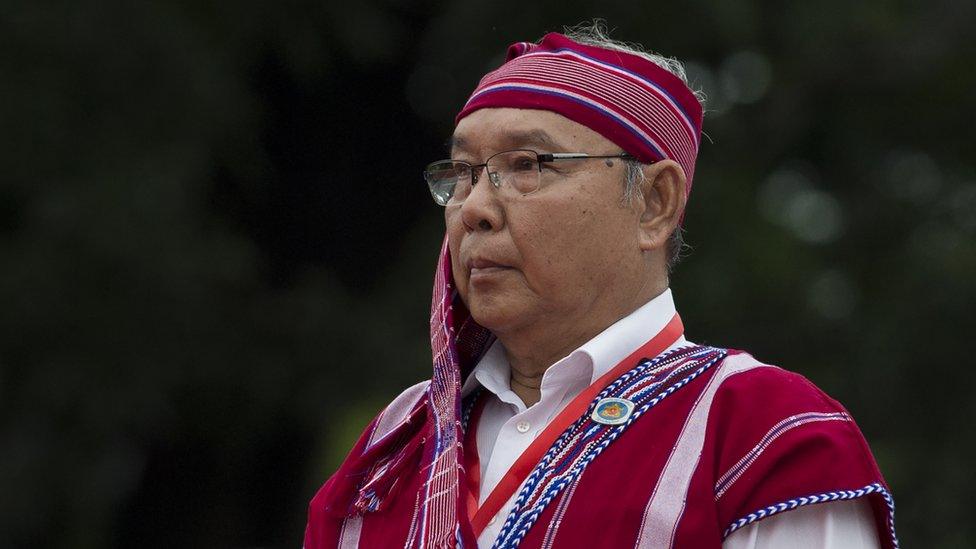
Mahn Win Khaing Than is currently in hiding
"Despite our differences in the past, this is the time we must grip our hands together to end the dictatorship for good. "
The military considers the CRPH to be an illegal group, warning that anyone co-operating with them will face treason charges.
What's the background?
Independent international observers have disputed the military's claim of the fraudulent election held in November 2020, saying no irregularities were observed.
Last week, the military accused Ms Suu Kyi of illegally accepting $600,000 (£430,000) and 11kg of gold. No evidence was provided and an NLD lawmaker denied the allegation.
Ms Suu Kyi has been held for the past five weeks at an undisclosed location and faces several other charges including causing "fear and alarm", illegally possessing radio equipment, and breaking Covid-19 restrictions.
Since the coup the military has used violent force to try to quell protests, leaving dozens dead and prompting widespread international condemnation.
Myanmar nun: 'Kill me instead'
The US has announced sanctions on coup leaders, while steps are also being taken to block access by the military to $1bn of government funds held in the US.
The military has dismissed criticism of its actions, instead blaming Ms Suu Kyi for the violence.

Myanmar profile
Myanmar became independent from Britain in 1948. For much of its modern history, it has been under military rule
Restrictions began loosening from 2010 onwards, leading to free elections in 2015 and the installation of a government led by veteran opposition leader Aung San Suu Kyi the following year
In 2017, Myanmar's army responded to attacks on police by Rohingya militants with a deadly crackdown, driving more than half a million Rohingya Muslims across the border into Bangladesh in what the UN later called a "textbook example of ethnic cleansing"

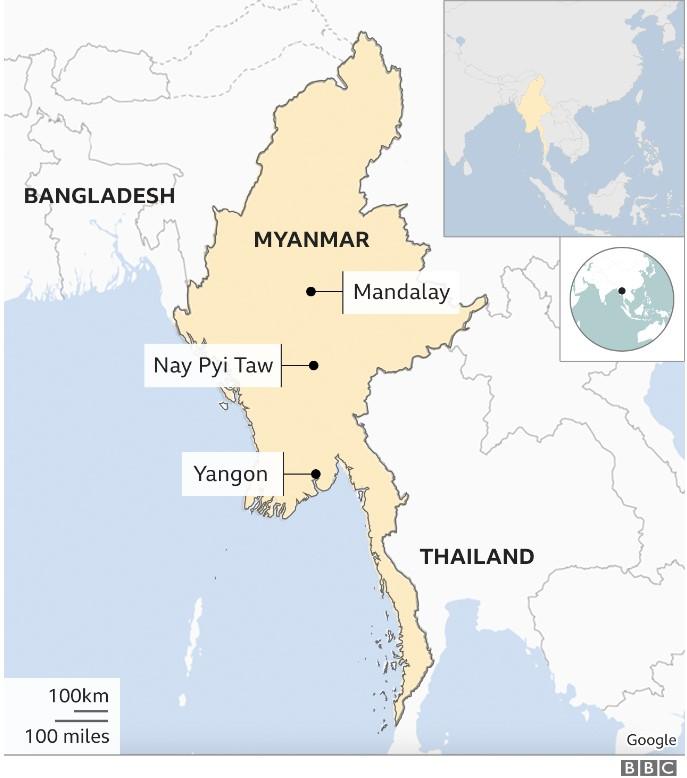
Related topics
- Published10 March 2021
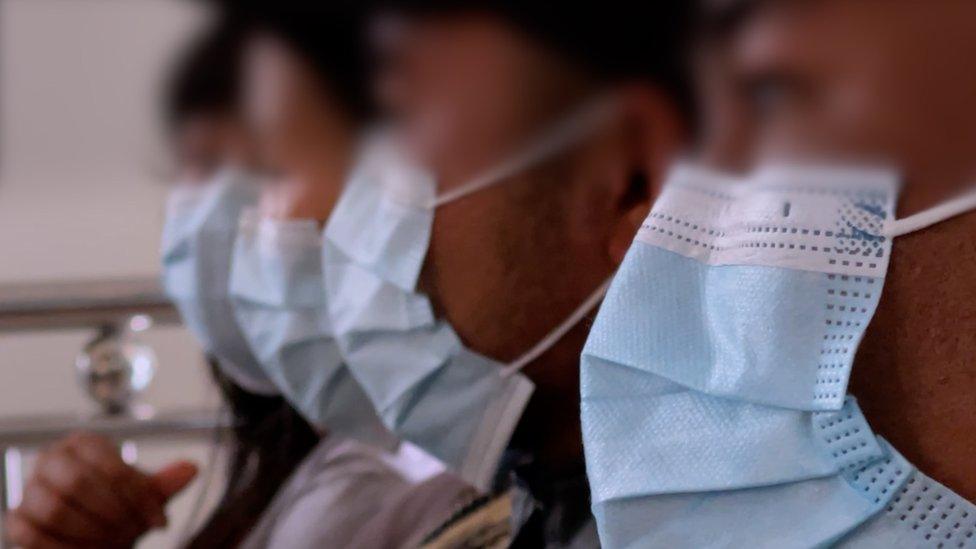
- Published12 March 2021
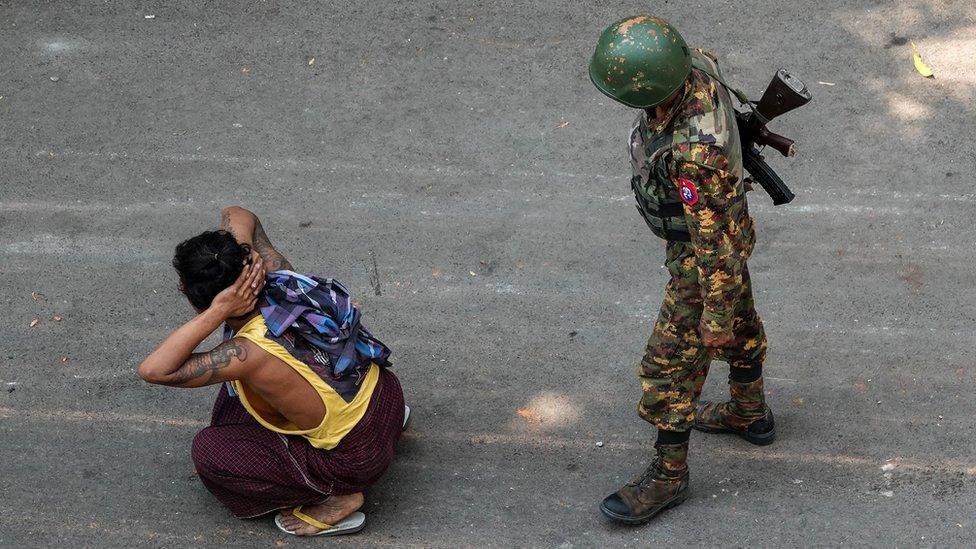
- Published7 March 2021
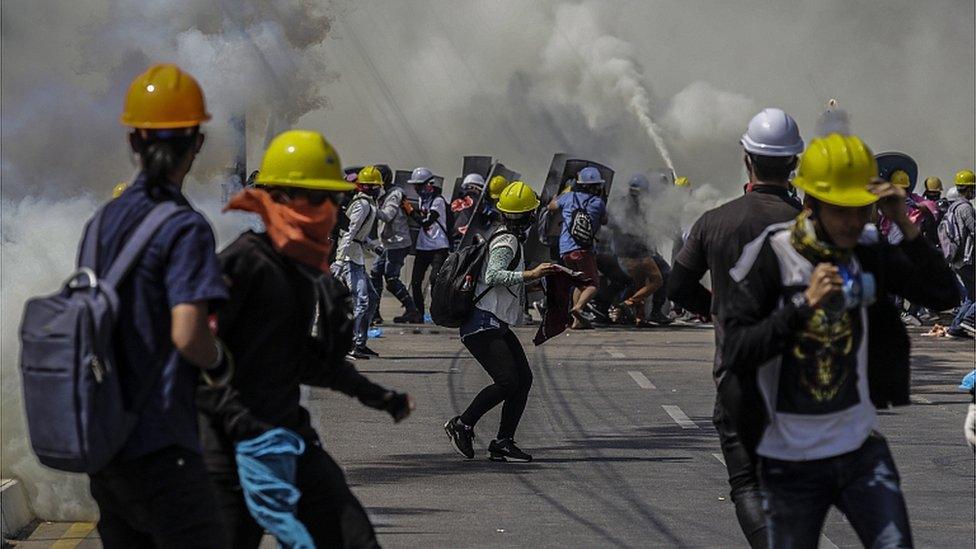
- Published10 March 2021
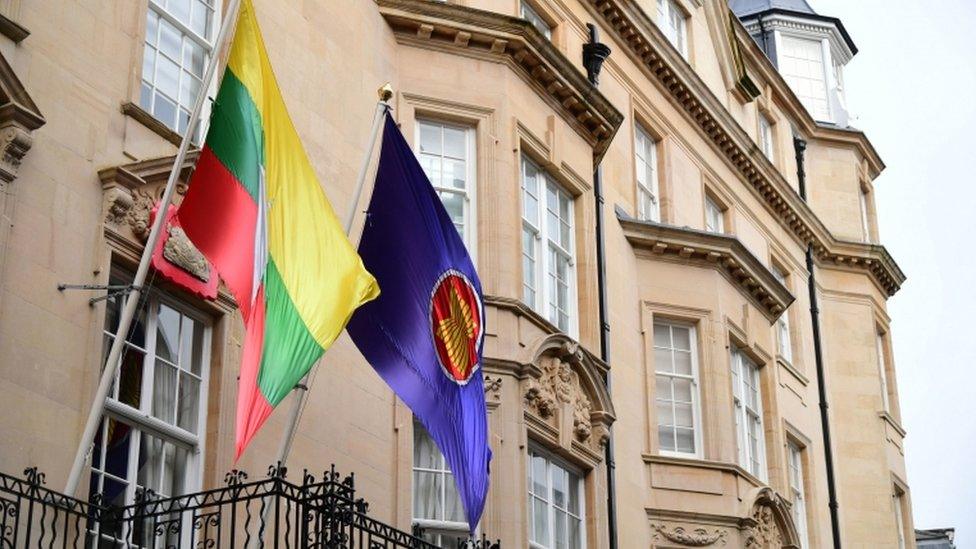
- Published9 March 2021
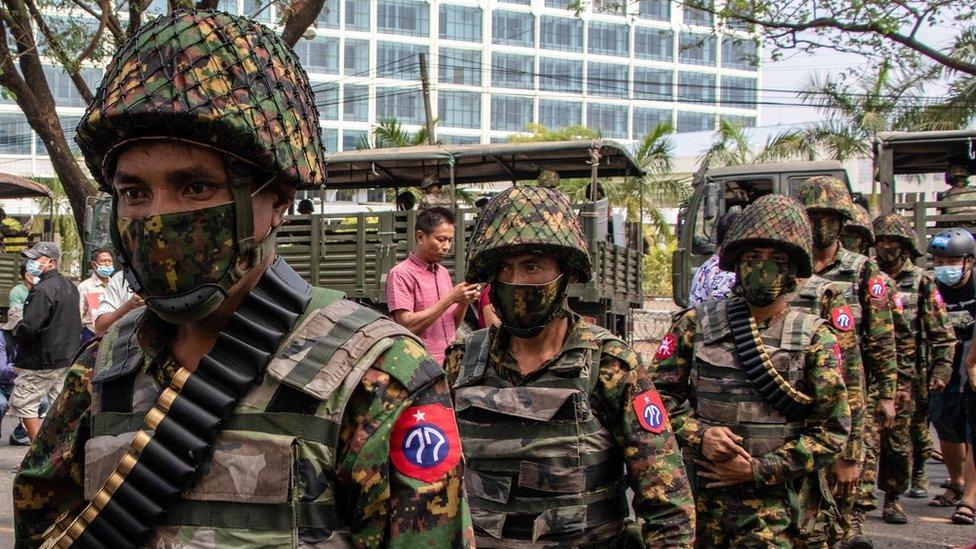
- Published13 February 2021
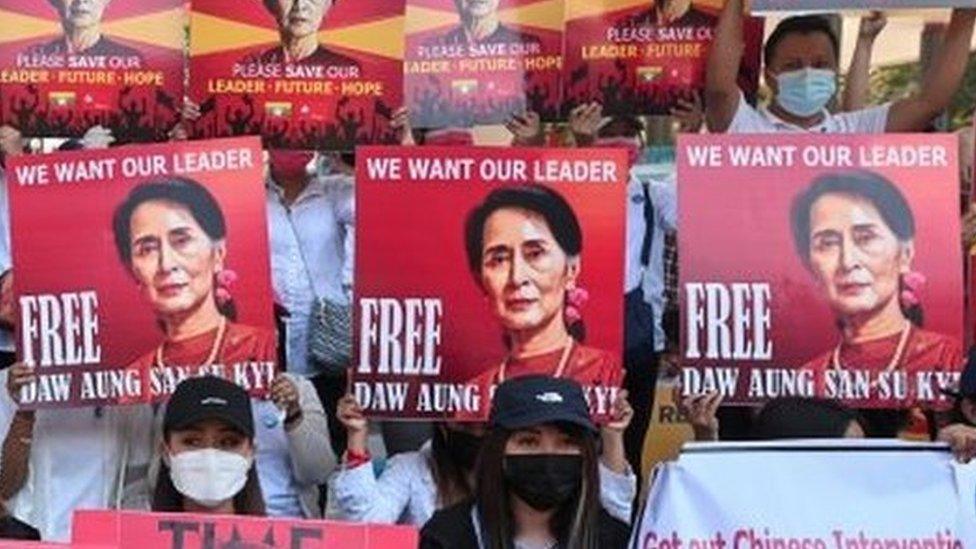
- Published26 February 2021
